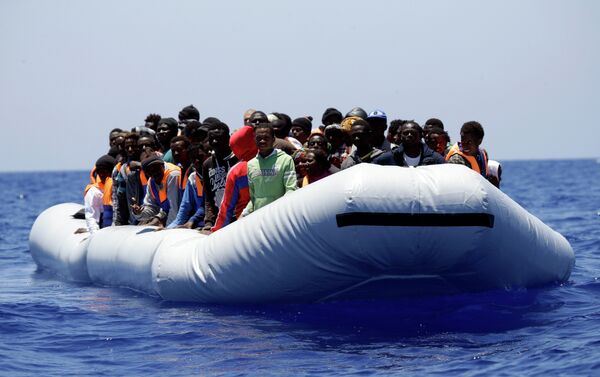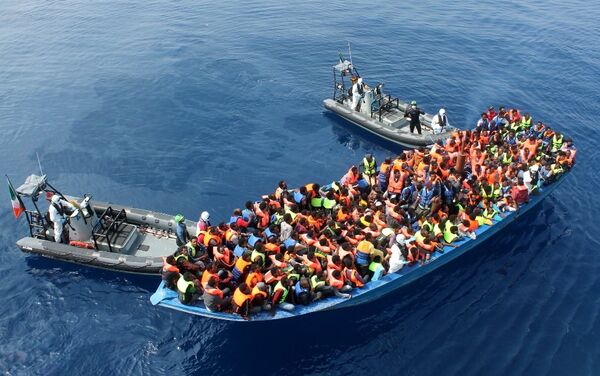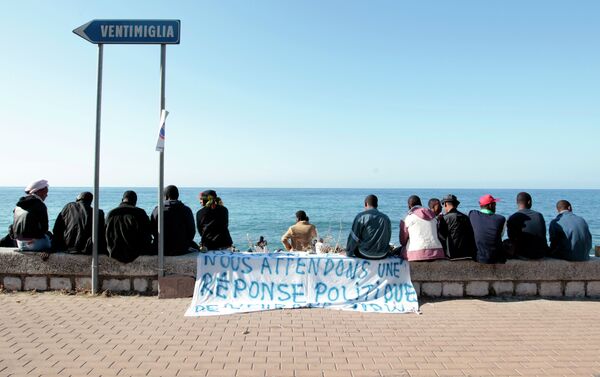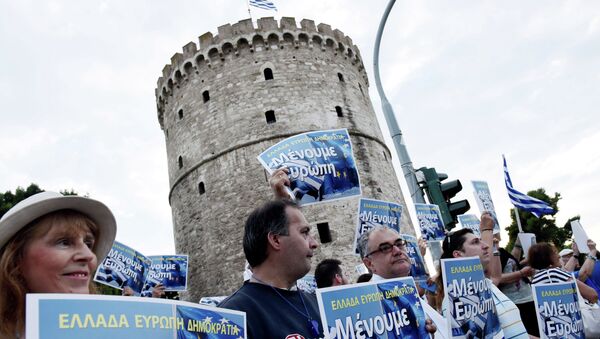BRUSSELS (Sputnik) – German Chancellor Angela Merkel and French President Francois Hollande both stressed after an EU summit held on Thursday that the upcoming Eurozone finance ministers’ Saturday meeting is crucial in finding a solution to Greece’s debt crisis.
Another #EuroSummit is not foreseen. Leaders expect the #Eurogroup to conclude this process at their meeting on Saturday. #EUCO #Greece
— Donald Tusk (@eucopresident) June 26, 2015
Talks between the finance ministers broke down once more on Thursday, failing to produce an agreement that would release bailout funds for Greece.
Athens is attempting to unlock financial aid from its main international creditors – the International Monetary Fund (IMF), the European Union and the European Central Bank (ECB) — to avoid a default on its multibillion-dollar debt. Its current bailout program expires on June 30.
My remarks following the first session of the European Council: http://t.co/p4p3CpTjB4. #EUCO #migrationEU #Greece pic.twitter.com/4pCEs8t733
EU Leaders Agree to Relocate 40,000 Migrants From Greece, Italy
EU leaders have agreed to relocate thousands of migrants who have arrived to Italy and Greece from across the Mediterranean to other European countries, Donald Tusk added.
"Leaders agreed that 40,000 persons in need will be relocated from Greece and Italy to other states over the next two years. Interior ministers will finalise the scheme by the end of July. And another 20,000 will be resettled. So that is a total of 60,000 persons in need of protection."
The European Council head stressed that the European Union will strive to take the different situations in various EU states in account when relocating the migrants.
"The current crisis concerns not only Italy and Greece. Since the beginning of the year, a third of asylum seekers have been registered in Hungary — that is more than in Italy. Our approach needs to be geographically comprehensive."
The European Commission’s proposal envisaging EU member state acceptance of migrants based on national quotas was suggested in April. The bloc is struggling with how to deal with the rapid influx of refugees crossing the Mediterranean Sea to escape economic hardship and warfare at home.





